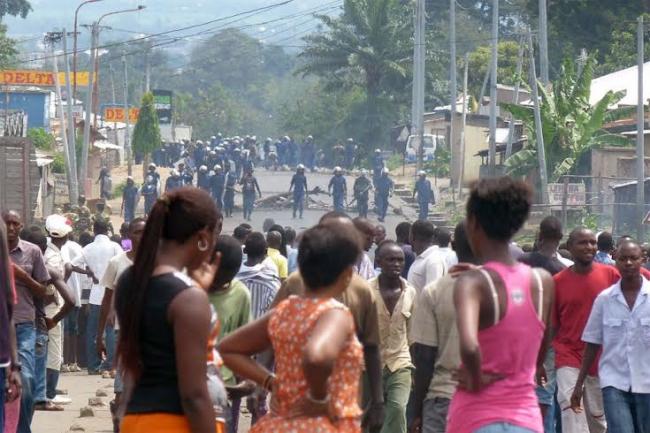05 Aug 2015, 06:53 am Print

In a statement issued yesterday evening by his spokesperson, Ban wished Mbonimpa a full and speedy recovery and called for a prompt and transparent investigation to bring the perpetrators to justice.
“This incident, which comes only a day after the killing of General Adolphe Nshimirimana, is part of a growing pattern of politically-motivated violence in Burundi that must be broken before it escalates beyond control.
“The Secretary-General stresses that accountability and the resumption of a genuine and inclusive political dialogue are the best response to such attempts to destabilize Burundi.”
According to the Office of the High Commissioner for Human Rights (OHCHR), Mbonimpa was badly injured after being shot four times, including in the neck, by two people on a motorbike yesterday evening in Bujumbura while he was on his way home.
OHCHR also voiced deep concern at the brutal arrest and ill treatment, on 2 August, of the RFI and AFP local correspondent, Esdras Ndikumana, by agents belonging to the Service national de renseignement (SNR), the national intelligence agency.
“Mr. Ndikumana was taking pictures on the crime site where General Adolphe Nshimirimana was killed on 2 August, when he was arrested and brutalized by SNR agents,” OHCHR spokesperson Cécile Pouilly told a news briefing in Geneva.
“They took him to their HQ in Bujumbura and reportedly subjected him to torture, claiming that he was a 'journalist enemy'.
OHCHR called on the Burundian authorities to launch “prompt, transparent and thorough investigations” into these very serious incidents and ensure that those responsible are held to account, stressing that impunity for perpetrators of human rights violations must stop.
It also condemned the killing of General Nshimirimana and called for the perpetrators to be brought to justice. In addition, the Office voiced concern about the large number of arbitrary arrests over the last few months.
In a statement to the press, the Security Council also condemned the killing of General Nshimirimana and the attack on Mbonimpa, calling on all actors to remain calm and to resume an inclusive dialogue.
Civil unrest erupted on 26 April in Bujumbura, Burundi's capital, after the ruling Conseil national pour la défense de la démocratie-Forces pour la défense de la démocratie (CNDD-FDD) party elected President Pierre Nkurunziza on 25 April as its candidate for the then-scheduled 26 June presidential election, which was twice postponed.
Nkurunziza has been in office for two terms since 2005, and a broad array of actors warned that an attempt to seek a third term was unconstitutional and contrary to the spirit of the 2000 Arusha Peace and Reconciliation Agreement for Burundi that ended a decade of civil war in the country. He was re-elected on 21 July.
The mounting violence across Burundi has also provoked a widespread humanitarian crisis as refugees have spilled across the country's borders and fanned throughout the region.
Photo: Desire Nimubona/IRIN
- Pakistan: Police recover two bullet-ridden bodies from Balochistan
- IDF strikes Hezbollah targets in Lebanon after projectile fire toward Northern Israel; 31 killed
- Pakistan: Armed gunmen kidnap 14 workers during coordinated raids in Balochistan
- ISIS-inspired plot foiled in UK: Two men get life sentences for targeting Jewish community
- India rejects allegations, urges Pakistan to tackle its ‘home-grown ills’





-1763561110.jpg)
